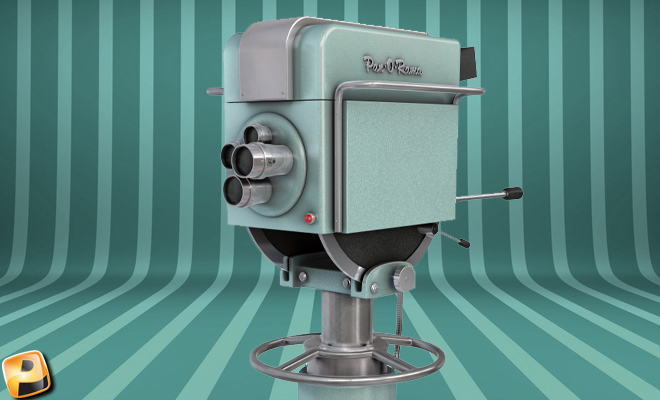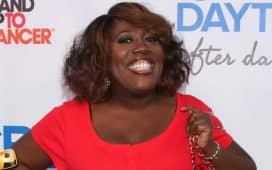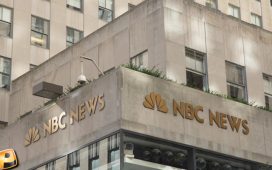Last Updated on January 21, 2017
Forty-eight years ago today, on November 22, 1963, viewers of CBS’s As the World Turns became the first to learn from TV that President John F. Kennedy had been wounded in Dallas, Texas.
The announcement came in the form of a voiceover by Walter Cronkite. CBS switched from the live soap opera to a slide that read “CBS News Bulletin.” Cronkite would later explain that for several minutes after word arrived from the news wires of the shooting, his studio crew had to wait for one of the old-style tube cameras to warm up before he could appear on camera.
The bulletin was short by today’s standards:
“Here is a bulletin from CBS News: in Dallas, Texas, three shots were fired at President Kennedy’s motorcade in downtown Dallas. The first reports say that President Kennedy has been seriously wounded by this shooting. More details just arrived: these details about the same as previously, President Kennedy shot today just as his motorcade left downtown Dallas. Mrs. Kennedy jumped up and grabbed Mr. Kennedy, she called ‘Oh, no!’ The motorcade sped on. United Press says that the wounds for President Kennedy perhaps could be fatal. Repeating, a bulletin from CBS News: President Kennedy shot by a would-be assassin in Dallas, Texas. Stay tuned to CBS News for further details.”
And with this announcement came the birth of breaking news on television. Ironically, that birth began with a death.
Within several minutes, a camera had finally warmed up to the point that Cronkite could appear on camera, at his desk, without a jacket. He later confessed that he had been on the air for several hours without even realizing he didn’t have his suit coat on.
ABC affiliae WFAA-TV was the first local station to break in to regular programming, with the station’s program director, Jay Watson, acting as anchor. Watson had been at Dealy Plaza, just a couple of blocks away from the station, when the shooting occurred. When he realized what happened, he ran back to the station to report it to the audience.
Here’s how he began:
“Good afternoon, ladies and gentlemen, you’ll excuse the fact I’m out of breath. But about 10 or 15 minutes ago, a tragic thing happened in the City of Dallas.”
Watson was first to interview Abraham Zapruder, who shot 8mm footage of the assassination, though they did not broadcast that footage, and was even smoking a cigarette on camera during that interview!
I would imagine that most people who are used to today’s style of coverage, which includes dramatic 3D graphics, music stingers and video walls are staples, would find YouTube clips of actual coverage from that afternoon to be shockingly dull.
Even primitive.
There were no live shots from Dealy Plaza. Reporters at Parkland Hospital, where the president and Texas Governor John Connally had been taken, went on the air by telephone. In some cases, anchors fumbled to relay information from those reporters on the air. (Check out footage at about 3:30 in that clip.)
The most striking thing for me, looking back on all of that old footage all these years later, was the reaction of the crowd to the news that Kennedy had died. There were men, women and children crying about the death.
It’s hard to imagine anything causing that kind of emotion. I think we got a good glimpse of it on 9/11. That was probably the first time people like me who were born after the assassination of John Kennedy ever witnessed sights like that.
We can only hope that we won’t have to go through another tragedy to see that kind of sight again.


















Wow. Listening to this is so… surreal. This was five years before my time.
(I had to laugh at the Nescafe ad, however.)
It is primitive, yes, but wow. This was an announcement that rocked the world, you know. My mother told me about it. Everyone cried when they heard the news; or when they got their morning papers. I even found some newspapers from then. (That was a long time ago… I don’t have them any more. I don’t know what happened to them…) It was a huge deal, one that people were so connected to at that time.
And Walter Cronkite – he was a household name when I was a kid. He also had clips in Apollo 13, as he was one of the top newscasters in 1971. I remember him from all the times my parents watched the news, and all the following newscasts about the space program. Like so many actors, he has had a huge impact on the news and was hugely famous.
I hope we never go through tragedies as a nation… but we do. The Challenger explosion, the Columbia disaster, 9/11… too many things already. But this is the way of the world we live in. Unfortunately, bad things happen, and we can be still affected as a whole. I wish it could be otherwise, too…